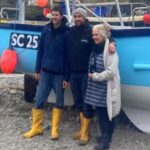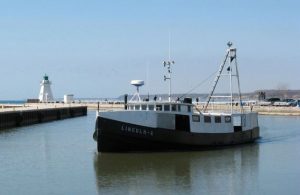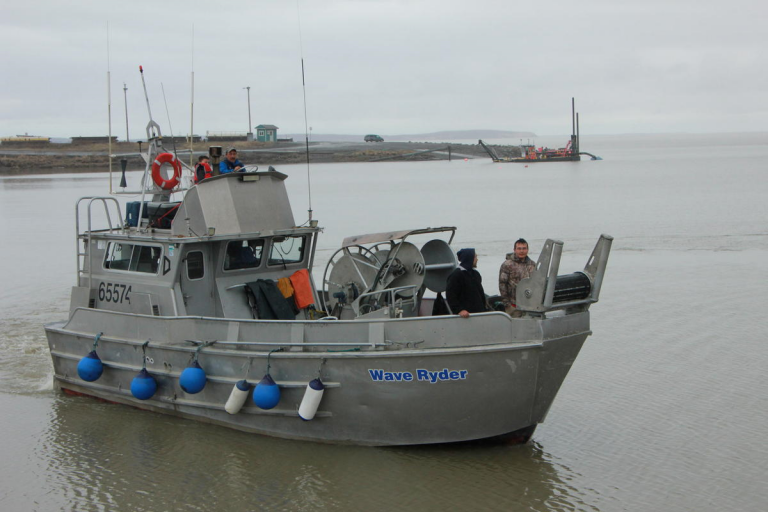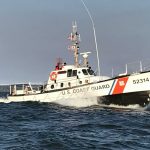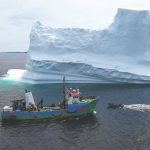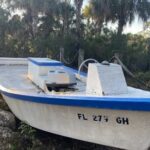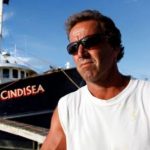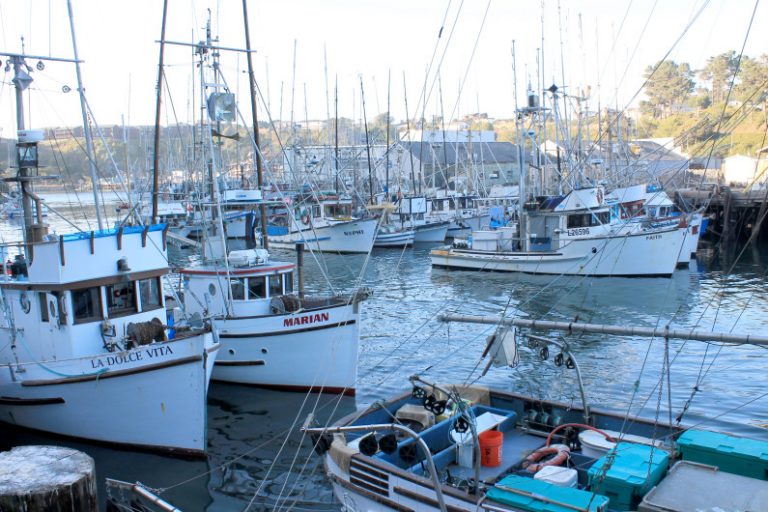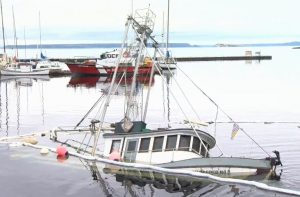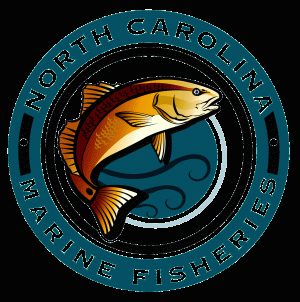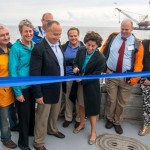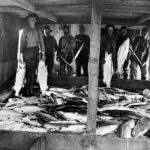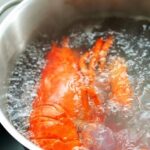Tag Archives: Coronavirus
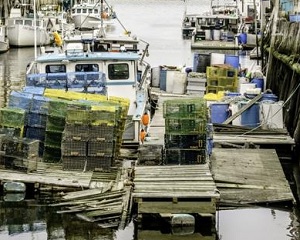
Maine lobstermen prepare for uncertain summer season, hoping for further federal relief
More than 1,300 lobstermen in Maine – about 1 in 3 – received forgivable loans through the Paycheck Protection Program (PPP), with the majority amounting to roughly $10,900.,, New data from the U.S. Small Business Administration shows that altogether, Maine’s lobster industry received roughly $24 million in PPP funding, the most given to any business concern in the state; dine-in restaurants, beauty salons, real estate, and home building received the next highest amounts. While the bulk of the fishing sector money – nearly $15 million – went to fishermen, some dealers, retailers and processors received loans between $150,000 and $1 million. >click to read< 17:49
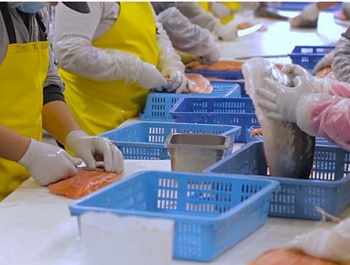
Juneau processor sanitized, screened, quarantined but Coronavirus still got in
On July 4, a Juneau resident who works at Alaska Glacier Seafoods started showing COVID-19 symptoms. He quarantined at home immediately and got tested. “Unfortunately, you can be contagious for days prior to showing symptoms,” said Jim Erickson, vice president and co-owner of the company. “That’s what makes this disease so hard to get in front of.” Health officials who investigated the case say it resulted from community spread — not from inside the plant. “We’re not sure where he contracted it initially, because he’s probably not sure,” Erickson said this week. “I mean, let’s face it, you could pick it up anywhere.” >click to read< 15:10
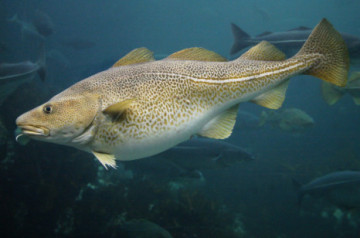
Icelandic Cod Spray Bodes Well Against Coronavirus
While several countries across the globe are vying to create a vaccine against COVID-19, Iceland, a nation of fishermen, has come up with a possible solution of its own. PreCold, a mouth spray intended to be used against the first symptoms of a cold based on cod enzymes, has proven efficient during tests and managed to deactivate about 98.3% of the virus that causes COVID-19, national broadcaster RÚV reported. The spray creates a protective film in the pharynx where the viruses that cause the common cold tend to localise and replicate. The film using enzymes extracted from cod offal, weakens viruses so they fail to replicate to a degree that makes the host sick. >click to read< 07:27
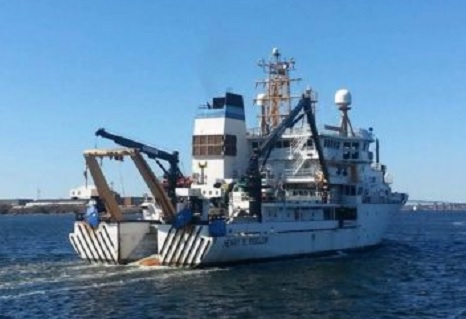
Coronavirus: COVID-19 and mandated on-board fisheries observers during the pandemic resurgence
The NOAA/NMFS “Navy’s” at-sea surveys in the Northeast region were cancelled at the beginning of the COVID-19 pandemic and will not be resumed for at least the remainder of this year. “Since March, we have been rigorously analyzing various options for conducting cruises this year and are taking a 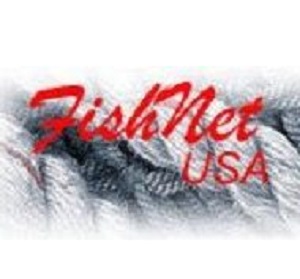 survey-by-survey, risk-based approach. After much deliberation, we determined that there was no way to move forward with these surveys while effectively minimizing risk and meeting core survey objectives,” according to officials at the Northeast Fisheries Science Center in a statement issued July 10.,,, But mandatory on-board observers pose no COVID 19 threat to commercial captains or crew?,, the mandatory on-board observers are scheduled to be back aboard commercial fishing vessels come August. >click to read< By Nils Stolpe, http://fishnet-usa.com/ 21:08
survey-by-survey, risk-based approach. After much deliberation, we determined that there was no way to move forward with these surveys while effectively minimizing risk and meeting core survey objectives,” according to officials at the Northeast Fisheries Science Center in a statement issued July 10.,,, But mandatory on-board observers pose no COVID 19 threat to commercial captains or crew?,, the mandatory on-board observers are scheduled to be back aboard commercial fishing vessels come August. >click to read< By Nils Stolpe, http://fishnet-usa.com/ 21:08

Nfld. & Labrador to research live seafood cold storage at Gander International, Port aux Basques for International Export
The Department of Fisheries and Land Resources is looking into creating new areas for cold storage of live seafood in the province, allowing more product headed for international markets to come directly from Newfoundland and Labrador. The provincial government announced $100,000 to determine the feasibility of creating cold storage facilities in Port aux Basques and at Gander International Airport Monday. Fisheries Minister Gerry Byrne said the idea is centred around creating cold storage for live products like lobsters and oysters. >click to read< 16:52

New Beijing coronavirus outbreak deals blow to China consumer confidence with seafood sales dropping 70%
The new COVID-19 outbreak in Beijing has dealt a heavy blow to the nation‘s seafood sector, pushing sales down 60-70 percent compared with pre-pandemic levels, and analysts said it‘s the worst time for the industry in decades. Seafood orders are canceled and marketplaces are shut in Beijing, where about 25 percent of China‘s seafood consumption takes place. Consumers elsewhere in the country are cautious, too, and it‘s taking a heavy toll on the sector. >click to read< 12:50
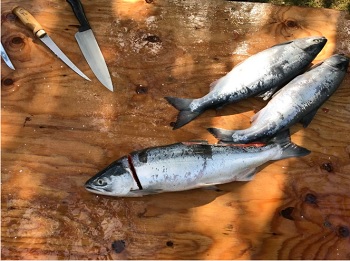
Bristol Bay Fisheries Report: July 24, 2020
A lull in returns today at 468,000 fish, the daily harvest bay-wide was about half what it was the day before. The total run is 55.9 million fish, about half a million away from last year’s. The U.S. Army Corps of Engineers has released the final environmental review for the proposed Pebble Mine. A Seattle-based seafood processor will pay out more than $440,000 to workers at a Bristol Bay cannery, the result of a settlement after the company was sued in June. “We think that it is a fair and just compensation for the workers that were held for 12 days at a hotel without being paid,” said Jonathan Davis, a managing partner of the San Francisco-based Arns Law Firm, which filed the lawsuit. The firm took on the case pro bono, so it will not receive any compensation for its work. The processor, North Pacific Seafoods, was sued for false imprisonment and failing to pay the workers, among other charges. >click to read< 15:30
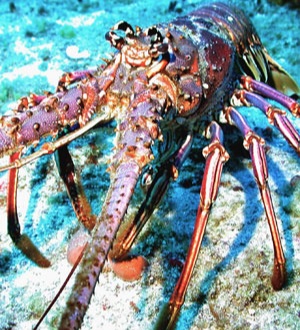
Florida Delegation Want Commercial Fishermen Included in USDA’s Lobster Relief Program
This week, the Florida congressional delegation, led by U.S. Sen. Marco Rubio, R-Fla., urged U.S. Agriculture Sec. Sonny Perdue to include Florida’s commercial fishermen in the lobster relief program announced by President Donald Trump on June 24. The program addresses harm to the United States lobster industry caused by steep tariffs imposed by the Chinese government. Dear Secretary Perdue, We write to request the inclusion of Florida commercial fishermen in the lobster relief program announced by President Trump on June 24, 2020, in response to the difficulties facing the United States lobster industry due to tariff action by the Chinese government. >click to read< 09:25
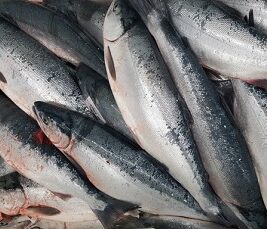
Bristol Bay salmon processors are starting to post base prices. They are extremely disappointing.
Fishermen have confirmed that Trident Seafoods, Red Salmon / North Pacific Seafoods, OBI Seafoods, and Peter Pan Seafoods have posted a base price of $0.70 per pound for sockeye. That’s just over half of last year’s base price of $1.35. “Well it’s — it’s ridiculous, because it’s not worth it at all. Because I’m putting all this money in,” says Alex, a captain from Wasilla who fishes for Peter Pan Seafoods. He declined to give his last name. Alex says that coming out of a tough season, he’s extremely disappointed with the prices. >click to read< 10:21
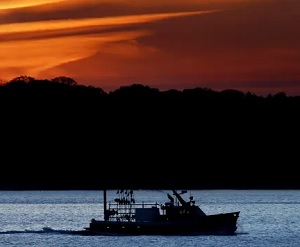
‘We have no market, but lots of lobsters’: a Maine lobsterwoman fights for her livelihood
“If I’m not fishing, I’m working on gear or my boat. Or meetings involving fishing. It’s what I eat, sleep and breathe,” lobsterwoman Julie Eaton tells me.,, I ask her what it’s like to start lobster season. “How do I even begin to tell you what it feels like?” she says, sighing. “It feels like I’ve held my breath all winter. Finally, when I turn the key to my boat and I’m going across the bay, my lungs fill with air for the first time in months. All of a sudden I feel alive.,,, “The pandemic is killing us,” Julie Eaton tells me. “It’s a terrible thing. We have no market, but lots of lobsters. We’re safe to fish on our boats. On my boat, it’s just me and my stern-woman. But I have no place to sell my catch! >click to read< 08:44
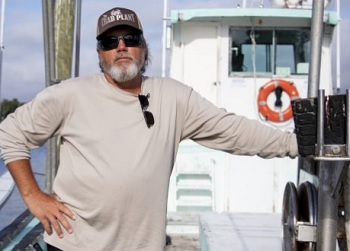
After Proposing A Five-Week Cut, Florida Cuts Stone Crab Season By Two Weeks
After originally threatening to shorten the stone crab season by five weeks, the commission conceded to complaints in a virtually held meeting on Wednesday and shortened the season by only two weeks, with a new end date of May 1. The new rules go into effect Oct. 1. The commission finalized its rules after hosting a series of virtual workshops since June with industry stakeholders, who widely criticized the agency’s original proposals. On Wednesday, commissioners acknowledged that the new rules, even with a May 1 end of season, would succeed in keeping more than 300,000 pounds of stone crabs from being harvested, which should surpass the agency’s goal of saving 1 million pounds of stone crabs from harvest over a five-year period. >click to read< 07:58
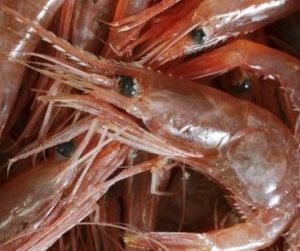
Newfoundland shrimp fishermen still in limbo as fish plants remain idle
Normally, the shrimp fishing season starts by June, with fishers in this area wrapping up their season in late August and hoping not to have to fish through the bad weather months of mid to late fall. But a wrangle over shrimp prices has lasted longer than usual, thanks in part to the uncertain markets caused by Coronavirus. In mid June the province’s Price Setting Panel decided on a price of $1.18 per pound, choosing the price suggested by the Fish Food and Allied Workers (FFAW-Unifor) over the price of .70 cents per pound suggested by the Association of Seafood Processors (ASP). Meanwhile, according to the union, shrimp processors in New Brunswick and Quebec, including a Royal Greenland-owned plant, have been buying shrimp from harvesters in that province while refusing to purchase from Newfoundland and Labrador harvesters. >click to read< 07:37
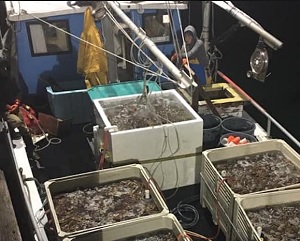
Coronavirus: Commercial Fishing During A Pandemic
My name’s Jake Bunch and I’m a commercial fisherman based out of Half Moon Bay, California. Jake started fishing in 2012. He fishes for king salmon, Dungeness crab, and sablefish, or black cod. Jake says he hasn’t been fishing anywhere near as much as he usually would this time of year. With shelter-in-place and other coronavirus related restrictions there just haven’t been enough buyers and reliable markets to make it worth it. Before COVID, about 75% of commercially fished salmon in California went to restaurants. Now, that market has mostly dried up. >click to read< 10:36
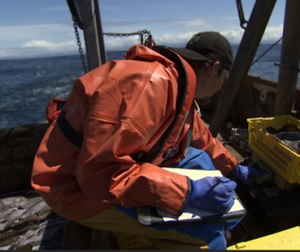
Fishing industry seeks emergency waiver from federal fishery observer requirement.
West Coast trawlers and fishing industry leaders looking to minimize the risk of exposure to the coronavirus are asking for an emergency waiver from a requirement to carry human observers. The National Marine Fisheries Service provided a two-week waiver from observer coverage in the spring. Chris Oliver, assistant administrator for NOAA Fisheries, clarified in a message posted Thursday that waivers remain available on a vessel-by-vessel basis. According to a spokesman, the federal agency has issued some individual vessel waivers for trips in the past three months — all were for times when observers were not available, not for other reasons, such as a vessel operator’s concerns about the coronavirus. >click to read< 15:54
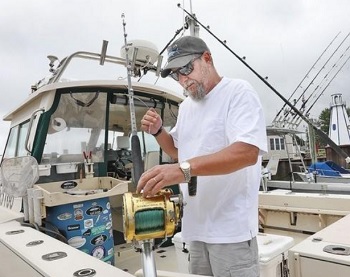
South Shore fishermen are finding demand for Atlantic bluefin tuna is way down
“It’s all about supply and demand and there’s no demand for them, so the dealers don’t want to keep buying them if they’re not able to keep selling them,” fisherman Greg Ares, based out of Green Harbor in Marshfield, said. “Maybe within the next week or two, restaurants will be opened up in the U.S., sushi restaurants, and they will purchase our bluefin tuna. Even if I get $6 a pound, that’s good enough to keep going.” American Bluefin Tuna Association President David Schalit said price has not really changed. “What has changed is the demand,” he said. “The demand is way, way off. Restaurants in the U.S. are barely open, some are maybe selling takeaway, some are still closed and in the Boston or New York areas, you see tables on the sidewalk.” >click to read< 15:14
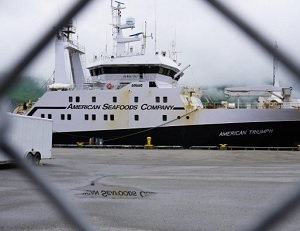
A factory fishing trawler is docked in Dutch Harbor with 85 Coronavirus cases. Now it’s headed for Seward.
More than two-thirds of the crew of a huge factory fishing vessel docked in the Aleutian fishing port of Dutch Harbor has tested positive for COVID-19, local authorities announced Sunday. The 85 cases are on board the American Triumph, owned by Seattle-based American Seafoods, one of the biggest players in the billion dollar Bering Sea pollock fishery. The American Triumph, and its crew members who tested positive, are scheduled to depart Unalaska late Sunday or early Monday with American Seafoods medical support personnel on board. They’re scheduled to sail to Seward and arrive by Wednesday,,, >click to read< 09:34
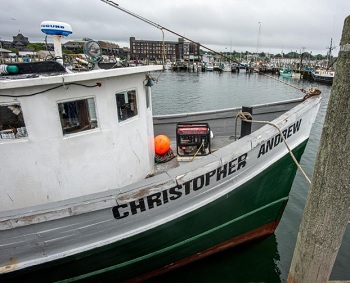
Coronavirus snagged the R.I. fishing industry, so state let fishermen sell direct to the public
In the spring, when the state closed restaurants to stop the spread of the coronavirus, fishermen were hit hard. Prices dropped dramatically. In some cases, wholesalers stopped buying, and fishermen had no place to sell their catch. To help fishermen navigate this storm, the state temporarily changed some regulations to allow them to peddle their catches directly to consumers, fish markets and restaurants, instead of selling exclusively to wholesalers. Fifteen Rhode Island fishermen are “actively using” their direct-sale licenses, according to Nichole Ares, principal biologist for the DEM’s marine fisheries division. The fishermen have sold about 13,000 pounds of fish for a total of about of $40,000. More than 160 fishermen applied for the licenses,,, photo’s, >click to read< 18:43
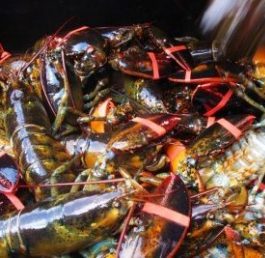
Maine: 1 in 3 Lobstermen got small Paycheck Protection Program loans
About $14.9 million in forgivable Paycheck Protection Program, or PPP, loans of less than $150,000 have been handed out to 1,358 Maine lobstermen, according to an analysis of newly released U.S. Small Business Administration data. That puts lobstermen ahead of full-service restaurants, real estate offices, beauty salons and home builders, which rounded out the top five Maine industries receiving small PPP loans. Maine’s $1.4 billion-a-year lobster industry – including those who buy, sell and process lobster as well as catch it – have received 1,495 forgivable PPP loans worth at least $24.2 million, so far. Fishermen got the lion’s share of the industry’s total PPP money, but only because they outnumber dealers, retailers and processors. Some dealers got loans of up to $1 million. >click to read< 07:15
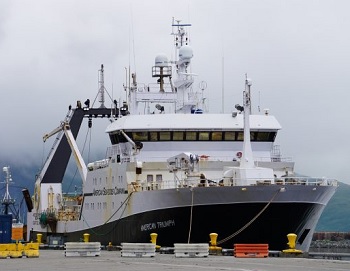
Seattle seafood company reports 6 more crew have Coronavirus in Dutch Harbor
The cases are onboard the American Triumph, which is operated by Seattle-based American Seafoods. Last month, the company announced that more than 100 crew members on three of the company’s six vessels had tested positive for the virus. At the time, experts questioned the company’s decision to mandate a five-day quarantine period, rather than the 14 days recommended by many health officials. American Seafoods subsequently said it had extended its quarantine period to two weeks. The cases announced Friday bring the total tally of positive cases on American Seafoods vessels to 117 since late May, according to spokesperson Suzanne Lagoni. >click to read< 10:18
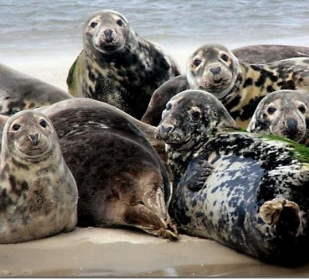
Great white sharks not the only threat gray seals bring – Here’s Why.
Over the winter, gray seals have — thanks in large measure to the protection afforded by the Marine Mammal Protection Act — further augmented their numbers. The “gray seal buffet” is once again open for business. But this season is, of course, unlike any in recent times. For the Cape and Islands, the coronavirus poses a far greater threat to the safety of its beachgoers and well-being of its economy than white sharks. But those threats are not necessarily unrelated. Here’s why. The Marine Mammal Protection Act is distinctive in that it not only protects all marine mammals, it protects them in perpetuity, regardless of their numbers and impact on co-existing species, including humans. Let me hasten to acknowledge that the act was necessary and appropriate when it was passed almost 50 years ago and remains so in most respects. Because it protects marine mammals permanently, it in effect relies on nature to take its course in controlling marine mammal populations and finding an appropriate balance among competing and coexisting marine species. >click to read< 09:06
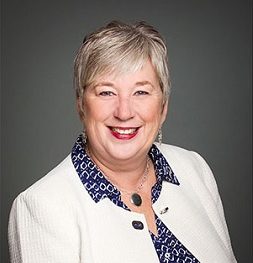
Atlantic Canada Fish harvesters still waiting for federal Coronavirus aid to flow
As the policy analyst for CFIB in P.E.I., in early May I worked with my colleagues to write a letter to the Minister of Fisheries and Oceans and Member of Parliament for Nova Scotia’s South Shore, Bernadette Jordan. This letter pleaded for help for fish harvesters, the folks who risk their lives on the water harvesting one of Atlantic Canada’s most important resources and exports, lobster. Lobster harvesters were deeply concerned about a quickly evaporating market and a glut of product driving down the price of their livelihood.,, While this was going on, the federal government was rolling out its array of programs to subsidize business: the Canada Emergency Business Account (CEBA) , the Canada Emergency Response Benefit (CERB), the Canada Emergency Wage Subsidy (CEWS) and the Canada Emergency Commercial Rent Agreement (CECRA). by Marley Kingston >click to read< 07:43
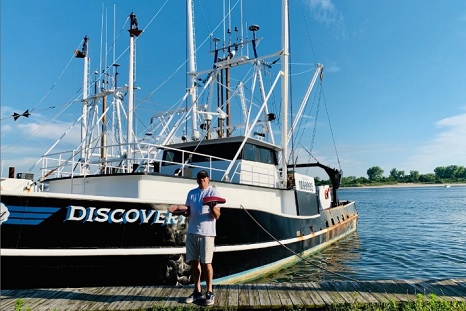
Jonathan Meyer a.k.a. JonnyFresh, has been in wholesale fish for 25 years. Now he’s bringing fresh catches to your doorstep.
Longtime veterans of the fish industry, including Marlboro resident Jonathan Meyer, saw their industry struggling to keep up. The businessman and entrepreneur, who has spent the last 25 years serving as a wholesaler for top distributors, suddenly found himself out of work. Yet, it was during the coronavirus pandemic that Meyer viewed an opportunity to reinvent himself and his business into a more intimate experience for customers. “At the beginning of Coronavirus , people were asking me for fish, ‘where can I get fish?’ You couldn’t get any groceries in April,” photos >click to read< 11:12
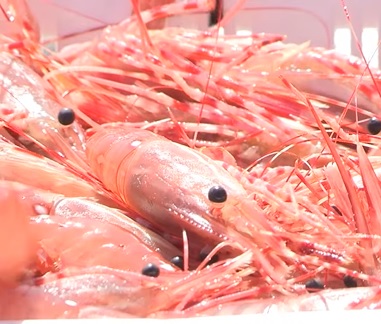
Asian market collapse means more spot prawns for us
Spot prawn season ends tomorrow, but that doesn’t mean you won’t be able to get the sweet-fleshed delicacy — indeed, seafood lovers can now order the Doctor Prawnie Henry pack from Organic Ocean, consisting of five one-pound tubs of flash-brine-frozen spot prawn tails. “We just love her to death for what she’s done for us,” said fisherman Steve Johansen, as he ripped the shell off a wriggling spot prawn and ate it raw on the dock of the False Creek wharf. “It’s like a drug,” he said. “They’re wild, they’re tasty, they’re sweet, they’re sexy.” Johansen is one of 264 licensed spot prawn harvesters that fish the coast from Vancouver to Alaska during the annual six- to eight-week season. >click to read< 12:06
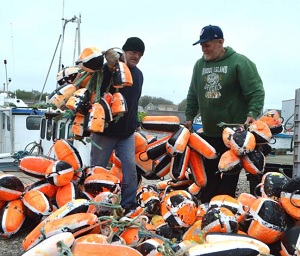
The public is credited with helping Cape Breton fishermen through Coronavirus impacted lobster season
Herb Nash, president of the 4Vn management board, said catches were decent this year and those prices made the crustaceans a meal for everybody instead of simply a rare treat. “Instead of lobsters $7-$7.50 lb at the end, lobsters were $5 pound, so people were buying them,” the 55-year-old fisher said. “The local markets helped a lot this year.” This year, people could purchase lobster for $45-$50 a dozen compared to $70-$75. “If the local market wasn’t as good as it was, more lobster would have had to be shipped out to sell and I think we would have been swamped with lobsters.” Nash said with the pandemic affecting the community and businesses, they were grateful to get through it and get a paycheck.,, ”While this season was a historically difficult one, Nash can recall the 1970s when the lobster catches were bad back then — sometimes 15-25 pounds per day. >click to read< 18:13
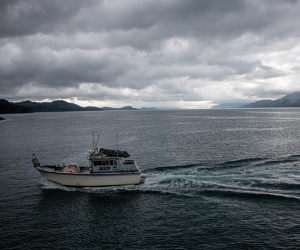
Harvesters remain resilient in facing economic challenges of Coronavirus
No one reading this needs to be reminded that we are in uncharted waters as thousands of Alaska fishermen set out to sea for the salmon season. As a fisherman with two young boys, I felt a deep sense of both privilege and responsibility as I set my nets in the glacier-fed waters of Taku Inlet in late June. Most fishing seasons the biggest questions are: Will the salmon come early or late? Will they be swimming deep or along the shoreline? This summer the questions are: Will Alaska’s independent fishermen financially survive the coronavirus? Will there be buyers willing to pay a decent price for their catch? Will fishermen get access to the personal protective equipment and testing that they need to avoid the spread of coronavirus? Will the long-fought Pebble mine be permitted while Bristol Bay’s fishing fleet is out risking their lives? By Tyson Fick >click to read< 14:47
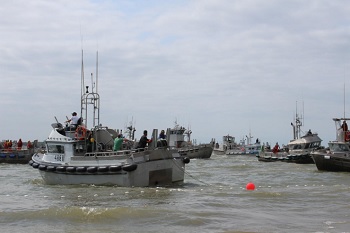
Bristol Bay Fisheries Report: July 13, 2020
Baywide daily harvest dropped below 2 million for the first time since July 4th. The total harvest is over halfway to the pre-season forecast swimming in at 25.2 million fish. Total escapement throughout the bay is now just over 12 million, and has now passed the pre-season escapement forecast. The total run in Bristol Bay so far this season is 38.4 million fish. Average fish per drift delivery was below 1,000 in every district of the bay yesterday. >click to read< 09:48
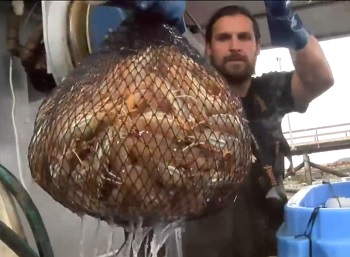
Coronavirus: B.C. spot prawn prices plummet as Asian markets vanish
An energized crew of a boat named Little Kathy pulled into Ladysmith harbour Friday loaded with live B.C. spot prawns. The crew unloads them as fast as they can, hurrying to get their day’s catch on the next ferry bound for the Lower Mainland. The prawns will ultimately end up in restaurants in Vancouver, one of the few markets remaining for prawn fishermen. “That’s a big change because of what’s going on with export markets,” said fisherman Fraser MacDonald. >click to read< China Says Samples Of Imported Salmon Tested Positive For COVID-19 –, We’ve been paying close attention to Chinese propaganda since the beginning of the coronavirus outbreak,,, And on Saturday, Bloomberg signal-boosted local reports claiming that imported shrimp from Ecuador had been found to be carrying traces of the virus,,, >click to read< 08:07
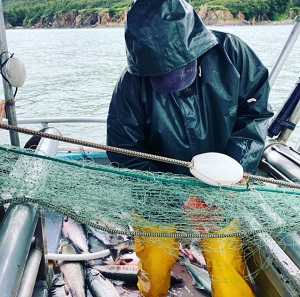
More uncertainty for Alaskan fishermen, ‘Devastating,’ meager chum salmon returns worry the fishing industry
“I have 35 years of experience and I’ve never seen a year this poor since 1988,” said Lars Strangeland, a gillnetter based in Juneau. “The market is extremely poor. We were looking at terrible prices wherever it goes.” The shutdown of restaurants and changes in international markets, all complicated by the coronavirus pandemic, is leading to less demand for chum salmon and roe. Strangeland is on the Board of Directors of United Southeast Alaska Gillnetters, and he said chum returns this year have been, “devastating.” “It’s unprecedented and staggeringly poor as well,” he said. >click to read< 13:07
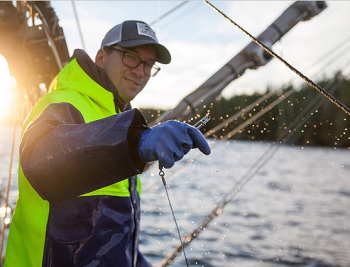
“Why can’t I buy fresh, local fish?” – Locally caught fish are scarce in fishing towns, an irony one Sointula family is working to change
It’s a new way of doing business for Jordan Belveal, a fourth-generation fisherman. Instead of selling to wholesalers, who almost always export the catch, Belveal and his family are marketing their catch directly to consumers in a new community supported fishery venture called Island Wild Seafoods. It could be an answer to the perpetual, “Why can’t I buy fresh, local fish?” question, repeated in fishing towns all over Vancouver Island. “So many people approach us looking to buy seafood, complaining that they just can’t find halibut, or lingcod or spot prawns,, With each inquiry of where to buy fresh fish, the Belveals thought more about selling it direct. >click to read< 09:17

NOAA Cancels Three Northeast Research Surveys due to Coronavirus Uncertainties
Due to the uncertainties created by the Coronavirus/COVID-19 pandemic and the unique challenges those are creating for NOAA Fisheries, we are cancelling three research surveys off the Northeast United States. The cancelled surveys include those for sea scallop, Atlantic surfclam/ocean quahog, and an advanced technology survey investigating the ocean’s mesopelagic layer—the “twilight zone.” These are difficult decisions for the agency as we strive to balance our need to maintain core mission responsibilities with the realities and impacts of the current health crisis. >click to read< 20:42

































